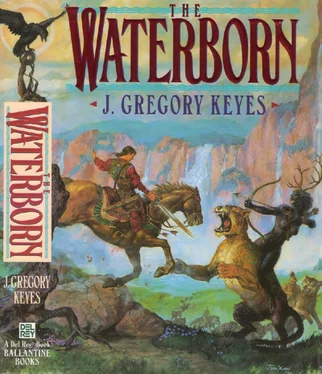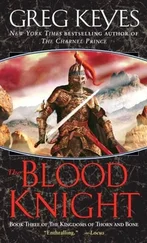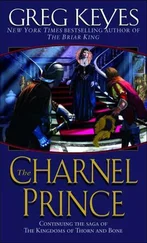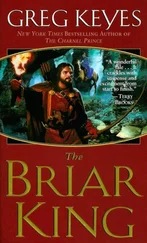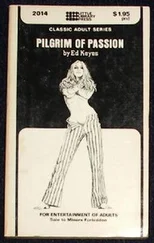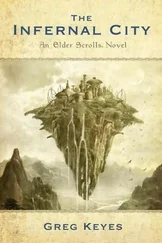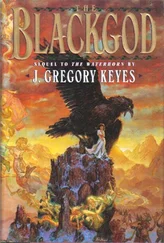Gregory Keyes - Waterborn
Здесь есть возможность читать онлайн «Gregory Keyes - Waterborn» весь текст электронной книги совершенно бесплатно (целиком полную версию без сокращений). В некоторых случаях можно слушать аудио, скачать через торрент в формате fb2 и присутствует краткое содержание. Жанр: Фэнтези, на английском языке. Описание произведения, (предисловие) а так же отзывы посетителей доступны на портале библиотеки ЛибКат.
- Название:Waterborn
- Автор:
- Жанр:
- Год:неизвестен
- ISBN:нет данных
- Рейтинг книги:3 / 5. Голосов: 1
-
Избранное:Добавить в избранное
- Отзывы:
-
Ваша оценка:
- 60
- 1
- 2
- 3
- 4
- 5
Waterborn: краткое содержание, описание и аннотация
Предлагаем к чтению аннотацию, описание, краткое содержание или предисловие (зависит от того, что написал сам автор книги «Waterborn»). Если вы не нашли необходимую информацию о книге — напишите в комментариях, мы постараемся отыскать её.
Waterborn — читать онлайн бесплатно полную книгу (весь текст) целиком
Ниже представлен текст книги, разбитый по страницам. Система сохранения места последней прочитанной страницы, позволяет с удобством читать онлайн бесплатно книгу «Waterborn», без необходимости каждый раз заново искать на чём Вы остановились. Поставьте закладку, и сможете в любой момент перейти на страницу, на которой закончили чтение.
Интервал:
Закладка:
"My mother says not to talk to foreigners," she said simply.
"Please," he pleaded, "I only want to know where the docks are, in Southtown."
She regarded him dubiously, but finally gave him an answer that involved a string of turns and unfamiliar street names.
"I don't know those streets," he told her. "Can you be more detailed?"
When she was done, Perkar didn't know whether he was thoroughly confused or knew where he was going. Thanking her, he followed her directions as best he could.
Not much later, he crossed a canal, a channel that had been lined with cut stones. He stared down from the bridge at it, agape. Boats were moving up and down the waterway—it was wider than the stream back home—poled by men and women. Some held cargo—fish, bundles of cloth—but most seemed to bear only a few passengers. He made out stairs descending at intervals from the street to the canal.
Beyond the canal, he turned where he thought the girl meant for him to, and the path climbed a hill. At the crest of it, he emerged from the early night of the streets onto an open plaza. There he was suddenly gifted with a broader view of the city, still visible in the pale and fading illumination of the sky. A thousand flat rooftops sprawled out below him, rectangular islands in an ink-dark sea. Many of the islands were inhabited; he could make out people tending fires, clothes and rugs hung on lines, flapping vaguely in the wind. A few of the roofs even had tents upon them, and he guessed that people might sleep in them, when the weather was warm. From many of the houses, pits of orange-yellow light gaped at his uphill vantage, interior courtyards cheerily lit from within.
Another hill rose to his right, and the structures clustered there loomed enormous. Massive vaults, sky-reaching towers, and long, unbroken walls of stone were somehow all joined into one, and formed a single building larger than the entire city of Wun. It scarcely looked like something Human Beings could live in, and the hair on his nape prickled at the sight of it. How must it be, in the center of such a thing? Like being in the mountain, in the Belly of the Raven, too far from sky and sunlight. He remembered the creatures who lived in the mountain all too well; spidery things, pale and sinister. Might not such creatures dwell there, in that hilltop edifice?
Was this the "palace" the guards spoke of? He remembered Brother Horse and his talk of the clan that ruled Nhol, men and women with a seeming of godhood upon them. Perhaps they were gods of shadow, of depth.
But there was a height, here, too. The hilltop monstrosity—the palace?—rolled down in blocky waves to the River, surrounded the whole of the way by a formidable stone wall. Where it touched the River, a monumental structure of cut stone reared up against the dying light. Perkar recognized it immediately as a mountain, or something made to resemble a mountain, but angular, like a building, as well. Water spewed from its summit, churning and gray, and poured like miniature rivers down its sloping faces. For an instant, Perkar felt dizzy, on the verge of some fantastic revelation. It was as if he were gazing at the very source of the Changeling, the mountain in the heart of Balat, where the gods lived. Yet it was the mountain not as it was , but as Human Beings might make it, of dressed stone, cornered, regular. He stared on, teased by inspiration but never quite comprehending the importance of what he saw. At last he shook his head, let his gaze stray.
The River was even wider here than at the point where the pirates had attacked him, the other shore obscured by distance and twilight. He saw several more canals—they all seemed to run toward the palace. He also made out, against the dim silver light of the water, a jumble of quays jutting out into the River like short, dark trails. They lay south of him, and so he continued on, sure that these were his destination, the false mountain still riddling at his brain.
He attempted to keep the location of the docks fixed in his senses as he descended the hill and lost sight of them. Despite his best efforts, he was soon confused again. He stopped several children to refine his course, and so at last, by the time night was truly pitch, he found himself near the water's edge and a strip of dirty, untidy buildings. There he sat down, his back to a wall, and gazed out at the dark River, freckled with the torchlight of a hundred boats. He sighed, his earlier elation gone with the sunlight. He felt very, very far from home.
"Well," he told the River. "Here I am. You killed my friends, bent my destiny, brought me across the whole world. Now what do you want? Where is this girl?"
His only answer was the sounds of the city, the faint lapping of waves on the quays.
Perkar realized that he had dozed off; someone was nudging him awake with a foot. He gasped and reached for Harka.
"Hey, no, watch that!" a young voice called down. He squinted up but couldn't make out the face. Whoever it was, though, was dressed much like the soldiers who had met him at the gate; he could see that much in the feeble light of a nearby torch.
"I'm sorry," Perkar muttered vaguely, still confused.
"Sleeping on the street is a bad idea, barbarian," the voice informed him.
"I don't know my way around here," he explained. "I don't know where I should stay."
"Oh. Didn't your captain tell you?"
"Captain?"
"You came on a boat, didn't you?"
"Uh, no," Perkar said, rising to his feet. Someone passed close with a lantern, and he caught a glimpse of the soldier's face; very young, it seemed, smooth, kind. "No," he repeated, "I came overland."
"Overland? Well. The guards at the gate should have told you where to go then."
"They told me to go to the docks, near Southtown."
"You're a bit from there," the man told him. "Come along, I'm patrolling that way, if you want a guide."
"Yes!" Perkar agreed, nodding vigorously.
"Come on, then, stay close," the guard counseled.
After they had gone a few steps, Perkar spoke up again. "My name is Perkar, of the Barku Clan," he offered.
"Eh? Oh," the man responded. "Hang, son of Chwen, is mine. Where are you from, barbarian?"
"From the Cattle-Lands, at the edge of Balat," Perkar answered.
"Is that far away?"
"It took well over a month to get here on the River."
"I thought you said you came overland," the man said, a trifle suspiciously.
"From Nyel," Perkar amended. "I lost my boat at Nyel."
"Funny," Hang replied.
"How so?"
"Something I just heard—ah, watch them!" Hang stepped over a couple of men lying facedown in the street. They looked like natives; Perkar wondered why Hang didn't warn them not to sleep in the street, too, and said so.
Hang snorted. "They should know better, that's why, but they're too drunk to have any sense, I imagine. I thought maybe you didn't know better."
"That was good of you," Perkar said.
The man shrugged, glanced slightly back at him as they walked along. "Most people don't like foreigners," he admitted. "I find them sort of interesting. My mother was a barbarian, you know."
"She was?"
"She was a Mang captive my father bought and eventually married."
" Bought ?" Perkar asked incredulously, wondering if he had misunderstood.
"Paid a fair price, too, twelve Royals, he used to say. That's what he called her most of the time, 'Twelve Royals.' "
Perkar wasn't sure he was following, precisely, but he remembered his father's advice about keeping quiet rather than revealing his ignorance.
"I thought I might go trading up-River one day, so I don't mind meeting strangers, to learn a little about them."
"I see."
"What have you come to Nhol for?"
"To see it, I suppose," Perkar told him, not really knowing what else to say. Then he added, "I was hoping to get a little work for my sword."
Читать дальшеИнтервал:
Закладка:
Похожие книги на «Waterborn»
Представляем Вашему вниманию похожие книги на «Waterborn» списком для выбора. Мы отобрали схожую по названию и смыслу литературу в надежде предоставить читателям больше вариантов отыскать новые, интересные, ещё непрочитанные произведения.
Обсуждение, отзывы о книге «Waterborn» и просто собственные мнения читателей. Оставьте ваши комментарии, напишите, что Вы думаете о произведении, его смысле или главных героях. Укажите что конкретно понравилось, а что нет, и почему Вы так считаете.
